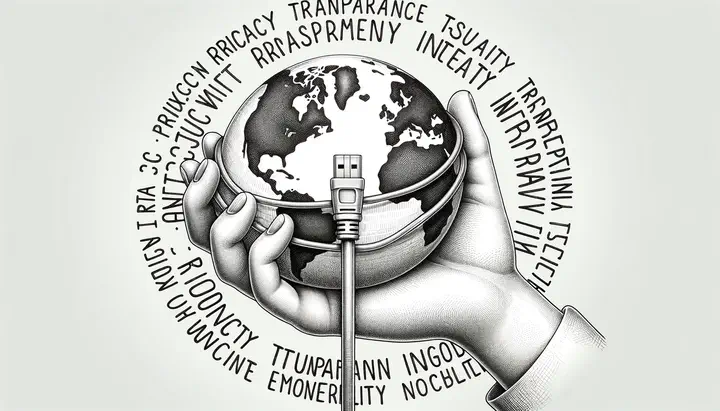IGF23
My first Internet Governance Forum - Kyoto Japan

Ethical Considerations in Computer Networking: Bridging Gaps and Acknowledging Impacts
Introduction
Computer networking, a field dominated by technical innovations, is currently witnessing a crucial shift towards ethical considerations. As a researcher delving into ethical thinking within this domain, it’s evident that an understanding of history, technical intricacies, and the broader societal implications is imperative. On one side we are looking for to mitigate our techno cocoon dependencies and wants desperately off the grid moments. And 35 % of the worldwide population is not yet connected. We then should take some time to think how we want to have our future Internet.
The Importance of Ethical Thinking
In an era where technological feats often overshadow their implications, ethical thinking serves as a compass. It prompts us to consider questions beyond mere capability: What are the ramifications for users? How does this align with societal values? For instance, while data routing decisions might prioritize efficiency, they also need to factor in user privacy and data sovereignty.
Historical Insights: Governance Bodies in Focus
Understanding the dynamics of computer networking ethics requires a peek into the history of internet governance, primarily the Internet Governance Forum (IGF) and the International Telecommunication Union (ITU) and the United Nation support.
The IGF, birthed by the UN, champions open dialogue on internet-related public policies. In contrast, the older ITU, with telecommunication roots, has seen its role evolve to address internet governance, albeit through a more government-centric lens. This approach starkly contrasts the bottom-up methodologies of entities like the IEEE and the IETF, which underscore open standards.
Confronting the Knowledge Gap
A glaring issue in the field is the discernible technical knowledge gap among many stakeholders. Policymaking, in many instances, is spearheaded by individuals with limited technical proficiency, leading to potential policy misalignments. This calls for heightened collaboration between technologists and policymakers, ensuring that decisions are both technically sound and socially beneficial.
Addressing the Silent Environmental Impact
As the digital realm expands, its environmental toll is undeniable. The energy needs of vast data centers, network operations, and the surge in device manufacturing are substantial contributors to carbon emissions. Yet, the environmental ramifications of IT advancements remain under-discussed. The IT industry’s role in governance mandates an acknowledgment and mitigation of its ecological footprint, urging the adoption of sustainable practices.
In Conclusion
The journey towards ethical thinking in computer networking is multifaceted. By bridging knowledge gaps, acknowledging the environmental ramifications, and understanding historical governance dynamics, we can chart a course that’s not only technologically advanced but also ethically informed and environmentally conscious. As we continue to navigate the digital era, these considerations will be pivotal in shaping a balanced and sustainable future.